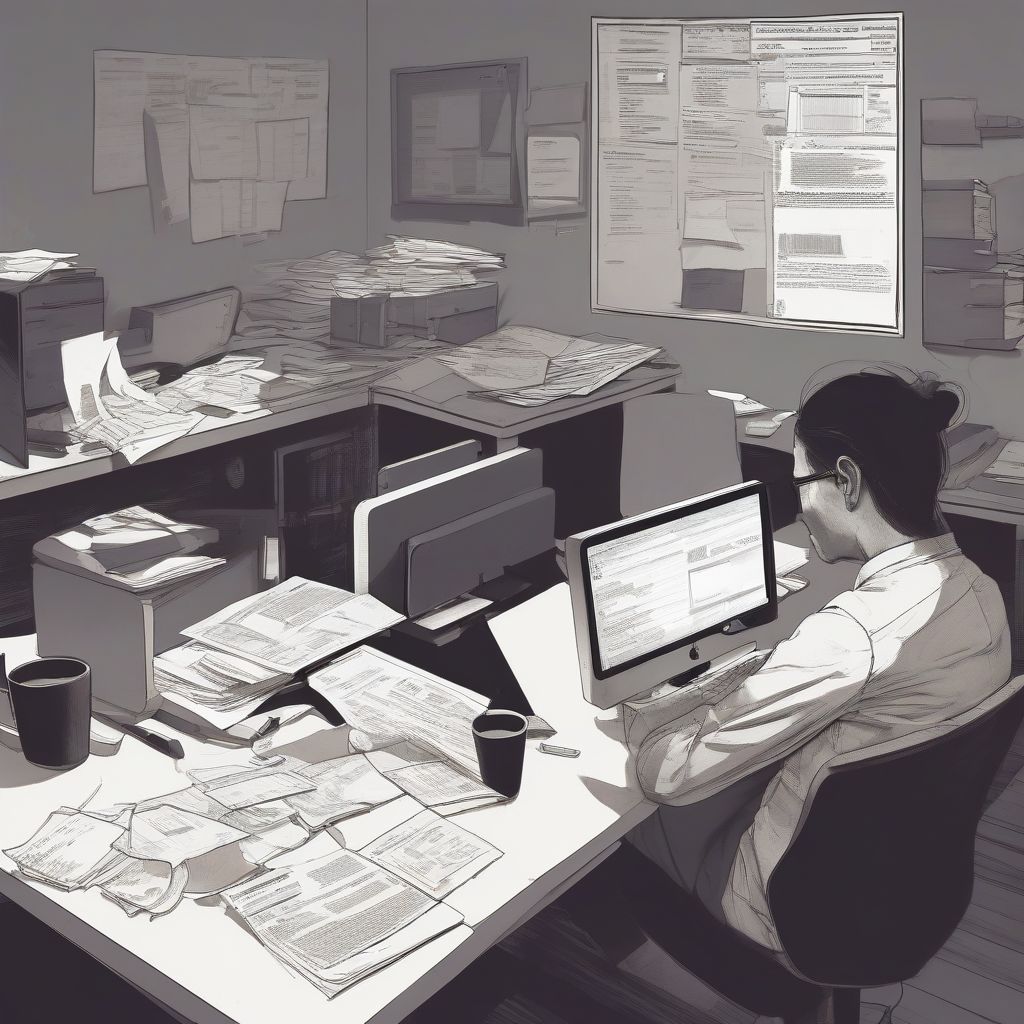Remember those days when your computer booted up in seconds and programs opened instantly? Now, it feels like you’re watching paint dry. A sluggish computer can be a major frustration, but before you rush out to buy a new one, there are several simple tweaks you can implement to revitalize your current machine. These tweaks can significantly boost your computer’s performance without requiring advanced technical skills.
Understanding Why Your Computer is Slow
Before diving into solutions, it’s helpful to understand the common culprits behind a slow computer. This understanding allows you to target the specific issues affecting your machine. Common causes include:
Startup Programs Overload
Too many programs launching automatically at startup can significantly drain resources. Imagine trying to sprint with a heavy backpack – your computer struggles similarly when burdened with numerous startup applications.
Low Disk Space
Just like a cluttered desk hinders productivity, a full hard drive can slow down your computer. When your disk space is low, the operating system has less room to maneuver, leading to decreased performance.
Too Many Browser Tabs
While convenient, having dozens of tabs open simultaneously can consume a significant amount of RAM, especially if those tabs are running resource-intensive applications or playing videos.
Outdated Drivers
Outdated drivers are like using an old map for navigation – they might get you there eventually, but not efficiently. Updated drivers ensure your hardware communicates effectively with the operating system, optimizing performance.
Simple Tweaks to Speed Up Your Computer
Now that we’ve identified some common causes, let’s explore some simple yet effective tweaks to speed up your computer:
Uninstall Unnecessary Programs
Identify programs you no longer use and uninstall them. This frees up valuable disk space and reduces the load on your system resources. “Think of it like decluttering your closet – you get rid of the things you don’t need to create more space and make it easier to find what you do need,” says hypothetical tech expert, John Smith, author of “The Simple Guide to Computer Optimization.”
Limit Startup Programs
Control which programs launch automatically at startup. By disabling unnecessary startup programs, you can significantly reduce boot times and free up resources for other tasks.
Defragment Your Hard Drive (for HDDs)
If you have a traditional hard disk drive (HDD), defragmenting it can improve performance by organizing fragmented files, allowing for faster access.
Update Your Drivers
Regularly updating your drivers ensures your hardware operates at its optimal performance. You can update drivers manually through the Device Manager or use driver update software for a more automated approach.
Clear Your Browser Cache and Cookies
Clearing your browser’s cache and cookies can improve browsing speed and reduce resource consumption. “It’s like wiping the slate clean for your browser,” explains Jane Doe, a hypothetical software engineer, in her acclaimed book “Optimizing Your Digital Life.”
Run Disk Cleanup
Use the built-in Disk Cleanup utility to remove temporary files, empty the Recycle Bin, and free up disk space. This can significantly improve system performance, especially if your hard drive is nearing capacity.
Increase RAM
If your computer frequently slows down, consider upgrading your RAM. More RAM allows your computer to handle more tasks simultaneously without slowing down.
Disable Visual Effects
Disabling unnecessary visual effects, such as animations and window transparency, can free up system resources, especially on older computers.
Scan for Malware and Viruses
Malware and viruses can significantly impact computer performance. Regularly scanning your computer with a reputable antivirus program can identify and remove these threats, improving system speed and security.
Consider an SSD
If your computer still uses a traditional hard drive, upgrading to a solid-state drive (SSD) can dramatically improve boot times and overall system responsiveness. SSDs are significantly faster than HDDs, making them a worthwhile investment for boosting performance.
 Speed Up Slow Computer
Speed Up Slow Computer
Conclusion
A slow computer can be a major source of frustration, but with a few simple tweaks, you can significantly improve its performance. By addressing common issues such as startup programs, disk space, and outdated drivers, you can revitalize your machine without requiring advanced technical skills. Remember to regularly maintain your computer by clearing your browser cache, running disk cleanup, and scanning for malware. These proactive steps will help keep your computer running smoothly and efficiently for years to come. We encourage you to share your own tips and experiences in the comments below! What strategies have you found most effective for speeding up your computer?



